Our recap of the Clear Path Analysis Private Markets Investor event covering challenges with Excel spreadsheets, data integrity and transparency.
By: Nick Bourne, Commercial Director, EMEA
Last month, Vidrio Financial attended the Clear Path Analysis Private Markets Investor event in London. This one-day event was a way for investors to learn more on the ways to improve outcomes across private market investments, operations, and DC arrangements. Throughout the day, we were able to connect with thought leaders across the private market space and grab takeaways that were at times, completely understandable with identifiable solutions, while others made us pause, asking why a solution hadn’t been implemented. Our analysis of this event follows below.
Got Excel?
A reoccurring theme across this event was that investors are still over-reliant on spreadsheet data. Most agreed that in 2023, this was “crazy”. The example from the event described a GP converting their data from Excel to PDF, while the LP then spent time extracting the data from PDFs, only to put it back into Excel. In Vidrio’s view, this isn’t surprising. In fact, in our e-book, An Investment Allocator’s Guide to Portfolio Management Solutions, we openly admit that if you are an early stage family office, endowment, fund of funds, you are extremely likely to have Excel or other spreadsheet software, accessible much in the same way as your smartphone. However, spreadsheet data does open the door for higher data risk and staffing costs. We personalize this often to help drive the point home with our soon-to-be clients. Many clients remember a time when they received a spreadsheet link and either forgot the PW, found the data inside was corrupted, or the data no longer reflected an accurate source of truth to further strategic allocation decisions. Platforms like Vidrio, help sort the chaos that excel, and other spreadsheets can pull in when not maintained at optimal levels. To learn more about the resources (outside of simple spreadsheets), we encourage you to look at our e-book research from the link above.
The Data Problem in Private Markets
Tools like Excel and other home-grown solutions quickly led to the second problem plaguing private market leaders at this event, which was data. Some of the concerns that attendees of this event voiced in terms of data amounted to:
- Private market data is often unstructured, inconsistent, and late to arrive when needed.
- Errors in the data run rampant and create risks for our investment teams. Therefore, we can’t rely on what we receive as a source or truth or performance.
- Costs are under constant scrutiny, and everyone is being tasked to do more with a lot less resources. This leaves us to outsource data and reconciliation. We feel like a there’s a huge loss of control, and that loss is only complicated by the fact that our data is extremely unstable and unreliable as it relates to private markets.
Vidrio often points to a “catalyst event” in our history that led us to create a better data solution for both public and private market allocators. Early on we observed a lack of true portfolio management solutions that excelled at data collection, enrichment, and reporting. This led us to create and market the Vidrio platform to a new class of multi-asset investors.
In terms of private markets, Vidrio monitors commitments, distributions, capital calls, cashflow analytics (including IRR, MIRR), cashflow forecasting, and the tracking of various terms and conditions for private market funds. However, we don’t stop there as we’re also integrating third-party databases to enhance further research into the private market space. Vidrio also monitors 300+ private market funds on a quarterly basis, covering private equity, private credit, infrastructure, real estate and more. Expectations (given the demand in private markets) are that this number should increase by 30% to 50% by year-end.
Many of the event attendees expressed concerns over their own legacy systems, as these systems are starting to crack as the team and organization grows. Based on audience responses, many agreed that these cracks start to appear as their AUM climbs north of $10bn, leading investment teams to weigh the decision on purchasing a third-party solution versus re-investing in their custom platform. Those tasked with managing portfolio risk and exposure have a huge say in the direction of future purchase decisions, and it looks as though the pendulum is starting to swing towards more best-in-class providers that cover multi-asset monitoring needs.
The Demand for Transparency
Attendees at the event also reported that transparency is more important than ever. Transparency, not only at the investment level, but also in accessing data, reporting, staffing and customer service. Vidrio has always been a big proponent of transparency and how it relates to both public and private markets. Some of our past coverage can be found through our blog entries on The SEC’s New Approach to Private Market Portfolio Transparency and Uncertainty Takes Hold as Inflation Drives a need for New Data Sets. The staffing and hiring levels of transparency are interesting and seem to be constantly changing. In the U.K. there’s a push to equate diversity, equity, and inclusion (DE&I) in a similar way that ESG has been mentioned in recent years. Vidrio fully appreciates that data expertise and talent is hard to find in this industry, making human capital invaluable to the scalability of any investment organization. The SEC is working on improved human capital disclosures, but nothing has been written in stone yet. At some point, scrutiny by either the SEC or FCA (UK) will begin, and financial service organizations will need to agree on a consistent and comparable disclosure across their peers. This might include how well leaders are living up to their organization's values, hiring methods, board diversity representation, salaries, work environment, pacing against social movements, and more. When it comes to the SEC or FCA, event attendees seemed to agree that work and guidance is still necessary in order to formalize and streamline a disclosure which can be referenced in future years to show progress.
If you would like to learn more about the ways that Vidrio Financial assists allocators in evolving from spreadsheets, custom builds, multi-vendor platforms, while improving data and transparency, please reach out to experience a demo today.






